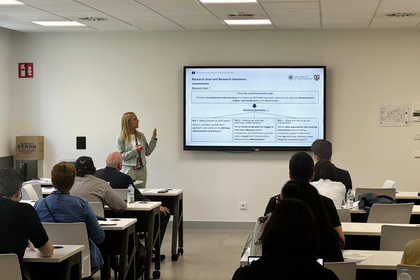IMU Research Insight 091: The delegation of pricing authority to business-to-business sales teams

Delegating pricing authority to sales personnel presents a multitude of potential benefits. It is, after all, the sales employees who are in daily contact with customers who are best placed to understand their needs. Conversely, this approach may also entail certain risks, such as an increased information asymmetry between sales personnel and management. There is a risk that sales personnel may exploit their autonomy for personal gain rather than for the benefit of the company. For instance, they may offer excessive discounts in order to achieve sales targets.
In a cross-industry study, Prof. Dr. Dr. Christian Homburg, Sebastian Junker, and Dr. Aline Lanzrath elucidated the factors that influence the delegation of pricing authority and the conditions under which it is most effective. The research is based on 52 expert interviews, a survey of 306 sales managers, secondary data, and experimental simulations.
The research identifies several factors that influence the degree of delegation of pricing authority. These include:
- (a) salespeople may clarify their need and suitability for more autonomy through certain signals, such as technical competence.
- (b) Sales managers could encourage delegation through measures such as investment in supporting IT infrastructure.
The extent to which the delegation of pricing authority contributes to corporate success is contingent upon a number of specific factors. These include:
- (a) the degree of delegation, the extent of individualisation of authority,
- (b) the level of organisational identification amongst employees, and
- (c) the degree of involvement of top management in pricing decisions
More information on the study can be retrieved from the research insight, which can be downloaded here.



